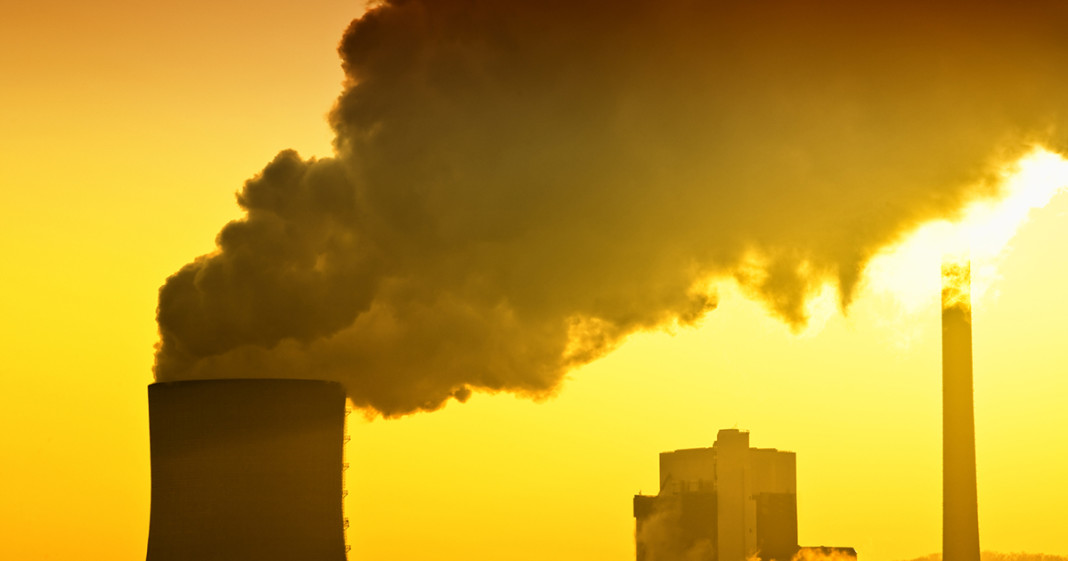On Saturday, December 12, approximately 200 nations signed on to an accord that is being celebrated as a “historic turning point” for the future of the planet and its climate. In the new agreement, the first of its kind, all signatories agree to take aggressive action in order to keep global temperatures from rising more than 2 degrees Celsius (3.6 degrees Fahrenheit) above pre-industrial times over the next 85 years. They also agree to make every effort to prevent that level from exceeding 1.5 degrees Celsius. U.S. Secretary of State John Kerry calls it a “tremendous victory,” while former Vice President and environmental activist Al Gore describes it as an example of “humanity’s moral courage.” Presidential candidate Hillary Clinton is calling it a “historic step,” and a “testament to America’s ability to lead the world in building a clean energy future.”
Bernie Sanders begs to disagree. In a statement to the media, Sanders acknowledged that it is “a step forward,” but adds that the Paris Climate Accord “goes nowhere far enough…the planet is in crisis. We need bold action in the very near future and this [agreement] does not provide that.”
To be sure, the Paris climate deal accomplishes a number of laudable goals. Most significantly, the agreement recognizes the importance of forests and the effects of deforestation. It provides incentives to developing nations. At the same time, it sends a strong message to signatory nations that they need to enact policies that will reduce the destruction of forests and encourage reforestation efforts (something to which oil-producing nations along the Persian Gulf were resistant).
The accord encourages wealthier, developed nations to take the lead in financing developing nations in making the transition to a low/no-carbon energy infrastructure, although no specific monetary figure was mentioned. In addition, the agreement recognizes “the importance of averting, minimizing and addressing loss and damage associated with the adverse effects of climate change” on developing island nations and coastal regions that will bear the brunt. Again, however, the language of the agreement makes no mention of liability on the part of heavily industrialized nations that emit the bulk of greenhouse gases. It does require signatories to return to the table every five years in order to propose new reduction targets for greenhouse gases.
One important aspect of the Paris Climate Accord is how it represents the first time in human history that the world’s nations have been able to put aside their differences and engage in dialogue on how to address the impending disasters that will surely affect us all.
At this point, however, it’s little more than that – discussion. The agreement certainly provides incentives and recognizes that we, as the human species, are all in this together. Unfortunately, it lacks the force of law. Governments around the world are on board and acknowledge the fact that stopping the process of global climate change is a long-term proposition. At the same time, they face some serious hurdles from a bloated industry, afflicted by psychopathic greed and the need to control. Sanders points out:
In the United States we have a Republican Party which is much more interested in contributions from the fossil fuel industry than they care about the future of the planet. That is true all over the globe. We’ve got to stand up to the fossil fuel industry and fight for national and international legislation that transforms our energy system away from fossil fuel as quickly as possible.
Hillary Clinton also acknowledges this reality. In a statement to the media, she said, “We will only succeed if we redouble our efforts…to drive innovation, increase investment and reap the benefits that will come from transitioning to a clean energy economy.”
Both Democratic candidates are spot-on. According to Robert Pullin of the Political Economy Research Institute at the University of Massachusetts, the nations of the world will need to invest approximately $1.5 trillion (USD) a year in order to stop climate change, representing less than 2% of the world’s GDP. Currently, they spend less than a third of that.
However, increasing investment in green energy to such a level will not only stop climate change, it will provide great economic benefits. In his recent book, Greening the Global Economy, Pollin writes that the transition to a clean energy economy will create 1.5 million jobs in the U.S. alone – a net increase of 650,000 when job losses in the petroleum and coal industries are factored in. China and India, two nations that have long fought against reductions in greenhouse emissions, would benefit even more. Of course, politicians would have to get over their long-running love affair with the fossil fuel industry and be willing to institute economic policy that would mitigate job losses. But, as Pollin points out, legislators “would be very pleased to claim credit for job gains of this magnitude.”
The Paris Climate Accord is indeed a step forward – but as Sanders and Clinton point out, it is no more than that. Much more is needed. There is no question that we have the tools, the ability, and the resources to rein in greenhouse gas emissions and transition to a clean energy infrastructure. The main question is: do we have the political will?



![Senator Schumer: “Single Payer [Health Care] is On The Table”](https://sandbox.trofire.com/wp-content/uploads/2017/07/Universal-Healthcare-218x150.jpg)
